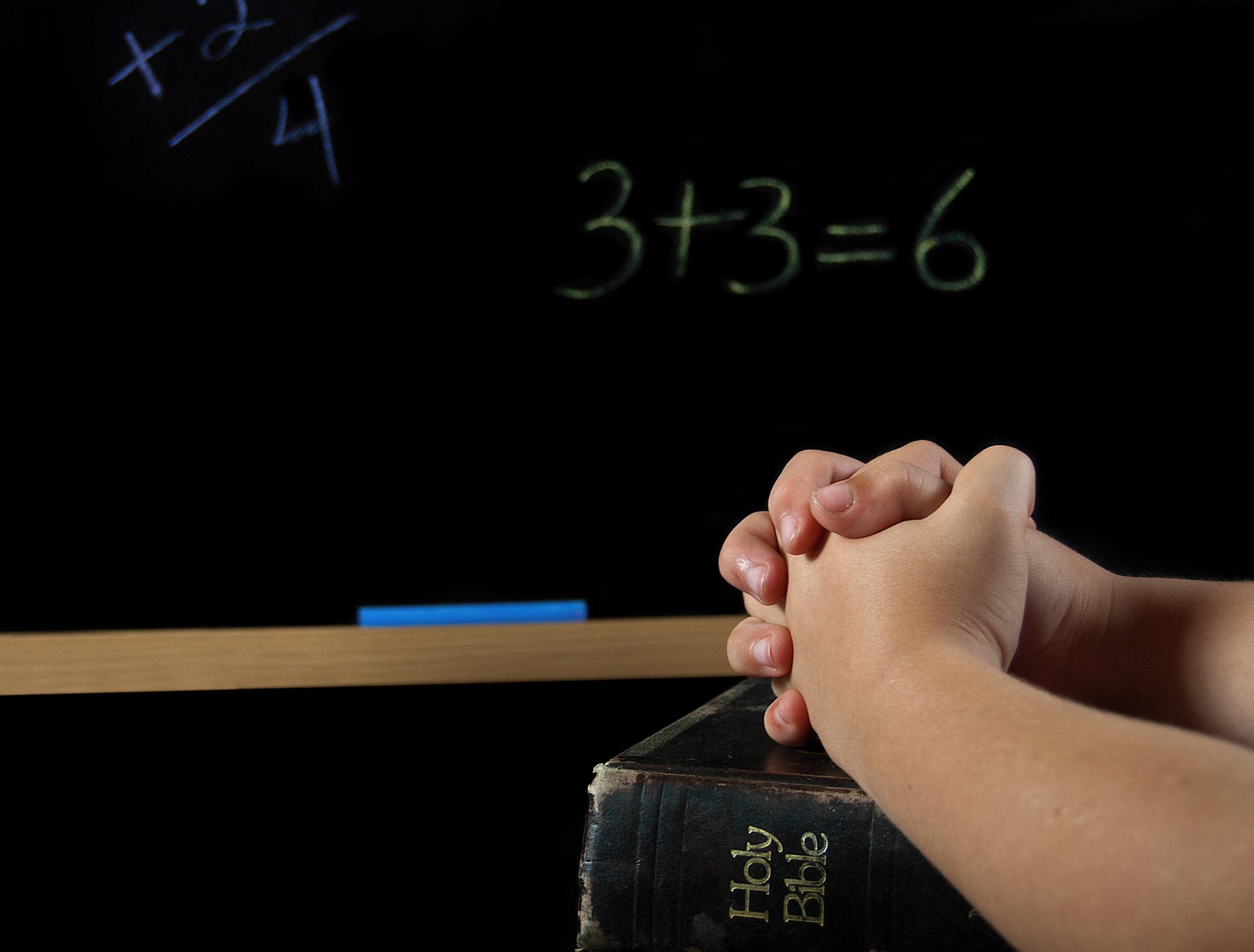Church and State Can Unite on Education
Churches should take the lead in children’s education, and the state should give them all the support to which they are entitled.

The decision to overturn Roe v. Wade is unequivocally the main event of the recent SCOTUS decisions for the pro-family right, but those who hope to create a policy agenda that empowers parents shouldn’t neglect the undercard.
In particular, they should pay attention to last month’s SCOTUS decision in Carson v. Makin, which confirmed by a 6-3 vote that religious organizations have the right to participate in private educational choice programs—programs through which parents use state funding to send their kids wherever they want. The ruling has the potential to continue a seismic shift in the educational landscape in parents’ favor, yet thus far it has garnered scant attention from proponents of pro-family public policy.
Students are missing out on the learning benefits religious school choice proponents should champion. The SCOTUS ruling means that can change. But it won’t, not until state policymakers wake up and make it happen.
Luckily, only a few weeks ago, Arizona set up a blueprint for other states to follow, creating the country’s most comprehensive education choice program. The bill, which goes into effect in September of 2022, will allow Arizonan students to use 90 percent of their taxpayer-funded state education dollars—around $7,000—to finance the best education environment for them outside the public schools system. Some understandably worry a government-administered program will bring regulations that hamper a school’s quality, but Arizona’s empowerment scholarship account (ESA) statute addresses this concern by specifying the state has no authority to change a school’s practices even if it accepts a student’s taxpayer-funded education dollars.
According to data, educational choice programs are linked with several benefits, including better student test scores, civic literacy, educational attainment, and perceived safety, all while encouraging constructive competition and specialization. The primary reason for these benefits is that education choice is an effective pro-family policy. Education choice prioritizes parents, not the system, allowing them to decide what education environment will be best for their child, making their education a family affair.
But wait, there’s more: a new study suggests that school choice might also make for stronger marriages. Authored by the University of Arkansas’s Patrick Wolf, the American Enterprise Institute’s Albert Cheng, and the University of Virginia’s Brad Wilcox, the study finds that private “religious schooling is associated with higher rates of stable marriage, lower rates of divorce, and lower rates of births outside of marriage.”
The benefits of private religious education remain out of reach for many students, however, in particular for lower income students. States have not created comprehensive enough education choice programs to financially empower every family with the funds needed to afford tuition at a private religious school, but they could.
More states should follow Arizona’s lead. If they do, they might very well invigorate the market for religious schools. This would in turn address the other main reason families cannot attend private religious schools: there are not enough of them.
Of course, many religious schools already do exist in our country, but handing education dollars over to parents to decide where to send their kids could increase demand for religious schooling along with the supply of tuition dollars. Easing the financial burden for churches to step up and create more high-quality education options for their congregants and community’s children by receiving funds from empowerment scholarship accounts should be a no-brainer.
Subscribe Today
Get daily emails in your inbox
Already thousands of parents entrust churches to teach their children about their religion in Sunday school, so why shouldn’t parents be allowed and encouraged to entrust their churches to teach their children other subjects, too, if they believe it to be the best educational fit for their child? Churches with Sunday schools have much of the infrastructure in place already for a distinctive educational environment, whether in the form of a hybrid homeschool, learning pod, or full-on private school.
Arizona’s new law suggests that now is the best time for churches to enter the education choice space and expand their teaching to all subjects for the good of their congregation, community, and country. New private school choice programs are being created every day that churches and congregants can participate in, and the Supreme Court’s decision in Carson v. Makin further enables them to get involved in the education space with the help of their legislators.
States and churches have an excellent opportunity in this new legal environment to help families and students access an education that empowers them to become the best version of themselves. They should take the chance and capitalize on it, so that every family and child, no matter their background, can more fully exercise their rights to life, liberty, and the pursuit of happiness.
Comments